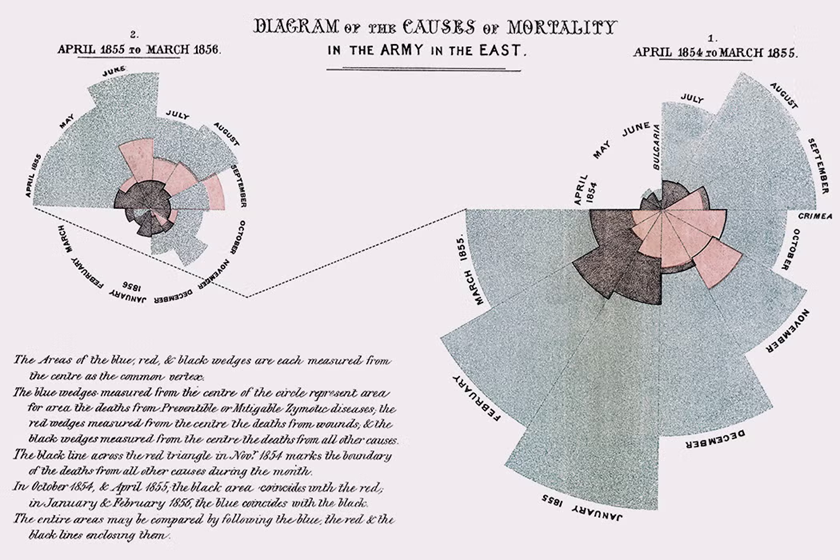Florence Nightingale Would’ve Crushed It in Marketing
What do you know about Florence?
Most people remember Florence Nightingale as the lady with the lamp: the compassionate nurse who cared for wounded soldiers during the Crimean War.
But dig a little deeper, and you’ll discover she was also a data analyst, persuasive communicator, systems thinker, and relentless reformer.
In other words, she has all the characteristics of a modern marketer. That may sound like a stretch, but hear me out.
In today’s noisy, data-driven, purpose-seeking world, Florence’s approach offers surprisingly modern lessons for how we influence, persuade, and lead change, whether in hospitals or businesses.
1. Specialization Builds Trust and Authority
Florence Nightingale trained as a nurse and became a leading expert in her field. This was at a time when nursing wasn’t considered a real profession. Florence Nightingale is considered by many to be the founder of modern nursing.
Parallels to Marketing:
Specializing in a niche builds credibility and trust.
In an age of generalists and noise, expertise cuts through.
Marketers need to focus and become trusted advisors, not just service providers.
2. Data-Driven Strategy is Powerful
Nightingale wasn’t just a caregiver; she was a data geek. She used early infographics (like the famous polar area chart) to show how unsanitary hospital conditions were killing more soldiers than battle wounds.
NOTE: Look at the diagrams from the right (1) to the left (2). Each pie represents data for a month. The blue (gray) sections are deaths. In the diagram on the right, there is lots of blue (lots of deaths). In contrast, the diagram on the left shows many fewer deaths. That is the point of this illustration. It quickly shows the results of the changes Florence Nightegale introduced and enforced.
Parallels to Marketing:
Smart marketers rely on analytics and dashboards to uncover patterns, diagnose problems, and present compelling, visual reports that drive change.
It's not just about intuition; evidence is critical.
3. Change Requires Persuasion, Not Just Facts
Despite her data, Nightingale had to persuade entrenched (and often arrogant) doctors to change hygiene practices. She understood that people don’t change because of facts alone; they change when beliefs, behaviors, and politics are addressed.
Parallels to Marketing:
Whether convincing a client to invest in SEO or persuading internal teams to embrace new messaging, marketers must be skilled storytellers and change agents, not just technicians.
4. Mission-Driven Messaging Matters
Nightingale saw nursing as a calling, not just a job. Her mission was clear: reduce suffering and save lives. That clarity infused everything she did, from hospital design to policy advocacy.
Parallels to Marketing:
Brands with a clear, authentic mission attract loyal audiences.
Marketers who communicate purpose (not just product) win hearts and create emotional resonance in a crowded marketplace.
5. Legacy Comes from Systems, Not Just Campaigns
Nightingale didn’t stop with temporary field hospitals; she reformed the entire British medical system, influencing sanitation, hospital design, and nursing education for generations.
Parallels to Marketing:
Great marketers don’t just launch campaigns; they build systems.
Content systems, lead funnels, automation flows, brand standards.
Campaigns come and go, but systems scale.
Conclusion
What do you think? Is Florence Nightingale relevant to today’s marketing environment?

